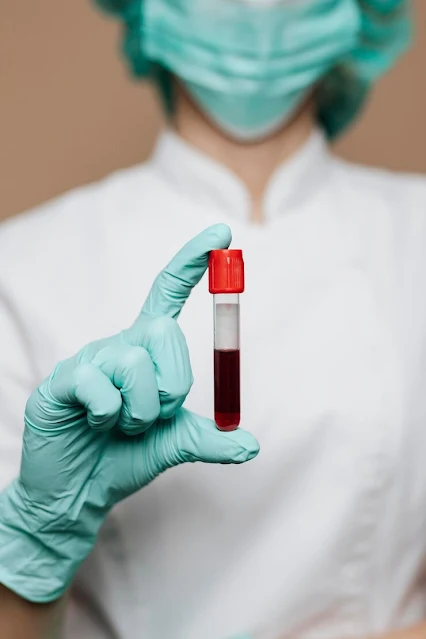Why Early Detection of Bleeding Disorders Is Crucial ?
Bleeding disorders may not always be visible on the surface, but when left undiagnosed, they can lead to serious health risks, including excessive internal bleeding, joint damage, and even life-threatening complications after surgery or injury. That’s why early detection isn’t just helpful — it can be lifesaving.
What Are Bleeding Disorders?
Bleeding disorders are conditions that affect how your blood clots. When you get a cut or bruise, your body uses clotting factors (proteins) and platelets to stop the bleeding. People with bleeding disorders may lack certain clotting factors or have low platelet function, which makes it hard for their blood to clot properly.
Common Types of Bleeding Disorders:
*Hemophilia A and B
*Von Willebrand Disease
*Platelet function disorders
*Vitamin K deficiency-related bleeding
*Acquired bleeding disorders (often linked to liver disease, medications, or autoimmune conditions)
Why Early Detection Matters ?
Catching a bleeding disorder early — even before symptoms become severe — can make a huge difference in a person’s health outcomes and quality of life. Here's why early detection is so critical:
1. Prevents Complications
Undiagnosed bleeding disorders can lead to dangerous internal bleeding, particularly in the brain, joints, and muscles. Even a minor injury can become serious without proper clotting.
2. Improves Surgical Safety
Knowing you have a bleeding disorder before undergoing surgery or dental work allows doctors to plan ahead with clotting factor replacement or other preventive care, dramatically reducing risk.
3. Protects Women’s Health
Women with undiagnosed bleeding disorders often suffer from heavy menstrual bleeding, fertility issues, or complications during childbirth. Early diagnosis can guide personalized treatment and safer pregnancies.
4. Supports Everyday Wellness
From sports injuries to nosebleeds, understanding your condition means you're empowered to take the right precautions — and avoid unnecessary hospital visits or stress.
5. Guides Long-Term Management
Bleeding disorders are usually chronic, but early diagnosis leads to early intervention. This allows for better management with therapies, medications, and lifestyle adjustments tailored to the individual.
Signs You Might Need Bleeding Disorder Testing
If you or a loved one is experiencing any of the following symptoms, it’s worth discussing testing with a healthcare provider:
*Frequent nosebleeds or gum bleeding
*Easy bruising
*Heavy or prolonged periods (in women)
*Excessive bleeding from small cuts
*Joint pain or swelling without clear injury
*Bleeding that won’t stop after surgery or dental procedures
*Family history of bleeding disorders
🩸 Early detection can turn confusion into clarity — and fear into a treatment plan.
Bleeding disorders can be silent but serious — and often go undiagnosed until a medical emergency occurs. Early detection is key to preventing complications, improving safety during procedures, and empowering patients with the knowledge to manage their health.
More Great Topics? Check Out…
👇👇
What Specific Probiotic Strains Are Most Effective for Managing GERD Symptoms?
What Is Stage 4 Cancer Life Expectancy?
What Is Scurvy? Side Effects, Dosage, Cost, and More
Ozempic Injection: Side Effects, Dosage, Cost, and More
Breast Cancer Drugs
Life-Saving Knowledge Everyone Should Know
Difference Between Life Insurance and Term Insurance
Common Reasons a Life Insurance Claim Could Be Denied
Does the body lose vitamins and minerals when it consumes too much water?
Fasting vs. Starvation: Key Differences Explained
Best Ways to Reduce Stress and Improve Sleep for Women
Common Causes of Dandruff in Women and How to Treat It
Insomnia: Causes, Symptoms, and Effective Treatments
HPV Vaccine: What You Need to Know
The Potential Benefits Of Mouthwashes For Teenagers
Norovirus Symptoms: What to Watch for and How to Recover Quickly
10 Facts About Childhood Cancer Parents Should Know
Why You Should Take Health Insurance for Your Parents
Colon Cancer: Symptoms and Causes
Chicken Pox: Symptoms, Causes, and Treatment
Stages of Cancer
.png)



.png)











0 Comments